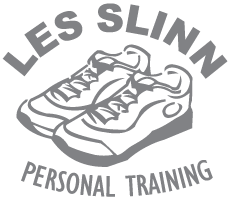This question should be the first thing any diver asks themselves as they prepare for any dive,
regardless of depth, duration or environment. Every diver understands that the underwater environment
is a hazardous place to be, but we equally know that these risks can be reduced through good training,
preparation and the use of well-maintained equipment. The one piece of equipment that is often
overlooked is the body we take underwater.
Scuba diving is one of the fastest growing sports in the UK and through training agencies such as
PADI and BSAC the underwater world is becoming accessible to people from all backgrounds, ages and
fitness levels. Although we all sign medical declaration forms stating we are fit to dive, how
many of us actually understand what that means? Ticking a box to say you are dive fit doesn't
automatically turn the odds in your favor.
What's the risk if I'm not fit?
There are lots of different reasons to maintain a good level of physical fitness as a diver and
in some cases it is even a prerequisite for the level of your diving certification. However beyond
the obvious benefits of being agile enough to maneuver in the heavy and cumbersome equipment required
to dive safely there are significant health risks involved with diving whilst unfit.
Being fit can significantly decrease your air consumption rate whilst diving. There is nothing
worse than diving with a buddy who has extremely poor lung capacity and for whom moderate exercise
forces them in to a breathing marathon. When underwater every diver wants to conserve their air to
maximize the length of time they can stay down. Increasing your fitness level will have a massive
positive impact on the rate at which you consume your air supply.
Furthermore fat is extremely buoyant, and although it seems counter intuitive, the fatter a diver is,
the more lead weight they need to strap to themselves to allow them to descend. Carrying an excessive
amount of lead shot around on a dive is uncomfortable and can reduce the divers' underwater range of
movement. I have seen some extremely unfit and overweight divers requiring nearly 20Kg of lead just
to allow themselves to get the under the water.
The one thing that no diver really wants to talk about is the chance of a coronary incident
happening underwater. Heart attacks are bad at any point in time, but underwater the likelihood of
a positive outcome is far less. The Divers Alert Network (DAN) reports that heat attack and
cardiovascular disease are a rising cause of fatalities in dive circumstances, especially in divers
over 40.
Lots of people naturally assume we breathe oxygen underwater, which is in the main not the
case. Recreational divers simply breathe compressed air; the same stuff we breathe whilst on dry land,
it's just compressed in to a cylinder so we can take a fair bit with us. It comprises roughly of
21% oxygen and 78% nitrogen. When we dive to depth our body tissues absorb nitrogen. Fatty tissues
absorb nitrogen quicker than lean tissues; they are also far slower to release the nitrogen when we
surface. Nitrogen released from fatty tissues in to the blood stream is a major contributing factor
to Decompression Illness or the bends as most people know it. Although I am simplifying things
significantly the long and the short of it is, that the more fat you carry the more you increase the
risk of subjecting yourself to a bend.
What's in it for me?
Not only will being fit significantly reduce your chance of a diving related injury, or worse
fatality, it will hugely increase your enjoyment of the sport. Diving isn’t an elite sport for elite
athletes, it is an easily accessed sport that should and is enjoyed by the masses. However it is very
important to understand that the very latest regulators, BCD, dive computers and dry suits, whilst
looking great and being technically advanced won’t do anything to prevent a serious injury from
occurring if you are not fit to dive.
Regular exercise, a balanced diet, good hydration and regular sleep are the essential tools every
diver should ensure are the first things they put in to their dive bag. Without these you could be
putting yourself at unnecessary risk.
Read more expert advice...

